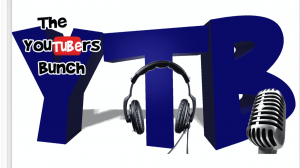
What is the best antenna for my handheld radio? How many times have we all heard that question? In this video, I talk you through the process of deciding which HT antenna will be best for you, and I share a few of my favorites.
RUBBER DUCKS:
Smiley Regular Duck (my preferred SAR radio antenna): https://www.smileyantenna.com/product-p/14650.htm
2.5" Flexible Mini-Duck (I use this one around the house for nearby repeaters and the DMR hotspot): https://amzn.to/39LnuVd
WHIPS:
Diamond RH77 series dual-band antennas
– BNC model: https://amzn.to/37FPiaU
– Female SMA (for Baofengs, Anytone 878, etc.): https://amzn.to/39NdXN9
– Male SMA (Yaesu, Icom, etc.): https://amzn.to/37xdlIM
Signal Stick: https://signalstuff.com/product/super-elastic-signal-stick-sma-male/
TELESCOPIC WHIPS:
Half-Wave Telescopic Whip Antennas:
– Smiley Antenna Half-Wave: https://www.smileyantenna.com/product-p/14680.htm
– MFJ-1714: https://www.hamradio.com/detail.cfm?pid=H0-001013
WIRE ANTENNAS:
– Roll-Up J-Pole Build Instructions: https://harriscountyares.org/training/KNW/KNW-123.pdf
– Extended Double Zepp Calculator & Build Instructions: http://www.westmountainradio.com/antenna_calculator_zepp.php?frequency=144
DIRECTIONAL ANTENNAS
K6ARK Portable Yagi Build: https://youtu.be/a4XIgYD-d1k
Elk Antenna: https://elkantennas.com/
Arrow Antena: http://www.arrowantennas.com/sub/arrowiiyagi.html
The Amazon links above are part of an affiliate account. Clicking through those links and making a purchase gives me a small kick-back to help support the channel.









